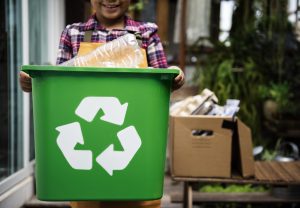
Nestlé has announced its ambition to make 100% of its packaging recyclable or re-usable by 2025.
Nestlé’s vision includes the ideal that none of its packaging will end up in landfill or as litter, as there is an urgent need to minimise the impact of packaging on the environment.
Nestlé CEO Mark Schneider said: “Plastic waste is one of the biggest sustainability issues the world is facing today. Tackling it requires a collective approach. We are committed to finding improved solutions to reduce, reuse and recycle. Our ambition is to achieve 100% recyclable or reusable packaging by 2025″.
Nestlé has already begun to implement new packaging with labels to help customers correctly recycle the packaging, beginning with Allen’s lollies earlier in 2018.
Nestlé Oceania CEO Sandra Martinez said: “Nestlé has been a leader in adopting the Australasian Recycling Label, which has been designed to outline what product packaging is made from so consumers can correctly recycle”.
“The scheme, developed by Planet Ark, the Australian Packaging Covenant and PREP Design, recognises that most people want to recycle, but need clearer information,” Ms Martinez said.
Nestlé focuses on three core areas: eliminate non-recyclable plastics; encourage the use of plastics that allow better recycling rates; and eliminate or change complex combinations of packaging materials.
Recognising the need for developing a circular economy, Nestlé is committed to:
- Playing an active role in the development of well-functioning collection, sorting and recycling schemes across the countries where we operate;
- Working with value chain partners and industry associations to explore different packaging solutions to reduce plastic usage, facilitate recycling and develop new approaches to eliminate plastic waste;
- Labeling our plastic product packaging with recycling information to help consumers dispose of it in the right way;
- Promoting a market for recycled plastics by continuing to increase the proportion of recycled plastics in our packaging.
Preventing packaging material ending up as waste, including in seas, oceans and waterways is one of the key reasons behind Nestlé’s pledge.

